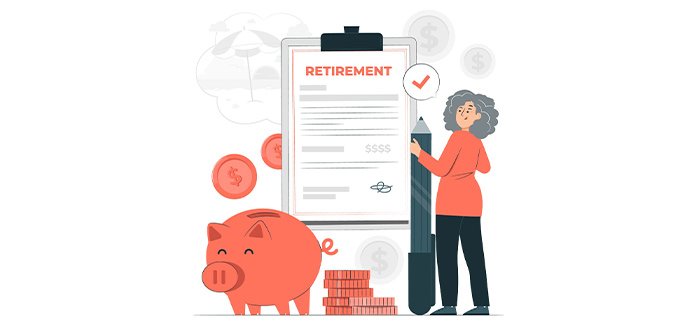Frequently Asked Questions
As the need for insurance increases, doubts and queries also increase. Navigating insurance complexities can be overwhelming. To help you with this, We have tried to address common doubts for a seamless journey with Bimafinserv;
How does a retirement plan work?
Retirement plans involve making premiums for a pre-decided period, and the accumulated fund is received after the plan matures. Options include withdrawing the entire amount, purchasing an annuity plan, or making partial withdrawals.
When should I start planning for retirement?
It is advisable to start retirement planning around 10 to 15 years before the intended retirement age to accumulate sufficient funds for a secure post-retirement life.
What are the tax benefits of a retirement plan?
Retirement plans offer tax benefits under sections 80C, 80CCC, and 80CCD of the Income Tax Act, providing deductions on contributions and exemptions on interest withdrawal.
Can I surrender my retirement plan?
Surrendering a retirement plan may incur cancellation fees, and specific conditions apply. Early surrender may require purchasing a deferred or immediate annuity plan.
What happens if I surrender the plan after 5 years?
Surrendering the plan after 5 years may still allow for interest payments. The policyholder may continue to receive the accumulated interest even after surrendering the plan.
How often should I update my retirement plan?
Regular monitoring and updates are recommended to ensure the retirement plan aligns with changing expenses and financial goals. Adjustments should be made as needed for optimal benefits. is rooted in the desire for a secure and comfortable post-retirement life. Whether envisioning serene moments with loved ones or aiming for financial independence, a retirement plan serves as a reliable tool to achieve these goals. This section delves into the motivations behind purchasing a retirement plan and the long-term advantages it offers.



